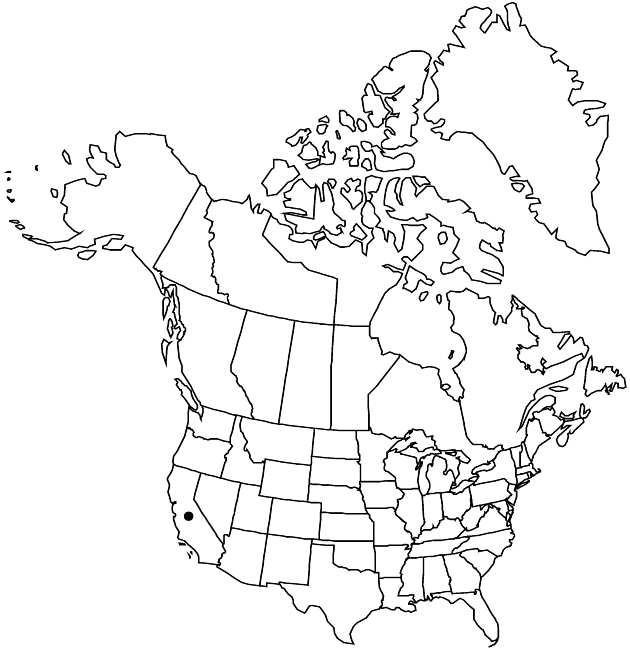Difference between revisions of "Heterotheca oregona var. scaberrima"
Brittonia 39: 383. 1987.
FNA>Volume Importer |
FNA>Volume Importer |
||
| Line 7: | Line 7: | ||
|year=1987 | |year=1987 | ||
}} | }} | ||
| − | |basionyms={{Treatment/ID/ | + | |basionyms={{Treatment/ID/Basionym |
|name=Chrysopsis oregona var. scaberrima | |name=Chrysopsis oregona var. scaberrima | ||
|authority=A. Gray | |authority=A. Gray | ||
| + | |publication_title=in A. Gray et al., Syn. Fl. N. Amer. | ||
| + | |publication_place=1(2): 124. 1884 | ||
}} | }} | ||
|synonyms= | |synonyms= | ||
| Line 26: | Line 28: | ||
|elevation=100–700 m | |elevation=100–700 m | ||
|distribution=Calif. | |distribution=Calif. | ||
| − | |discussion=<p>Variety scaberrima is found in the inner Coast Ranges. Its branches tend to be longer on average; the arrays are thus rather large and open compared to undamaged plants of the other varieties. The smaller leaves of much branched and few-headed specimens of <i></i>var.<i> rudis</i> can result in a habit similar to that of <i></i>var.<i> scaberrima</i>. This could create confusion in identity if the ovate outer phyllaries of the latter are overlooked.</p> | + | |discussion=<p>Variety scaberrima is found in the inner Coast Ranges. Its branches tend to be longer on average; the arrays are thus rather large and open compared to undamaged plants of the other varieties. The smaller leaves of much branched and few-headed specimens of <i></i></i>var.<i><i> rudis</i> can result in a habit similar to that of <i></i></i>var.<i><i> scaberrima</i>. This could create confusion in identity if the ovate outer phyllaries of the latter are overlooked.</p> |
|tables= | |tables= | ||
|references= | |references= | ||
| Line 50: | Line 52: | ||
|publication year=1987 | |publication year=1987 | ||
|special status= | |special status= | ||
| − | |source xml=https://jpend@bitbucket.org/aafc-mbb/fna-data-curation.git/src/ | + | |source xml=https://jpend@bitbucket.org/aafc-mbb/fna-data-curation.git/src/f6b125a955440c0872999024f038d74684f65921/coarse_grained_fna_xml/V19-20-21/V20_522.xml |
|tribe=Asteraceae tribe Astereae | |tribe=Asteraceae tribe Astereae | ||
|genus=Heterotheca | |genus=Heterotheca | ||
Revision as of 18:43, 24 September 2019
Stems usually branched distally, densely, coarsely stipitate-glandular. Leaves green to dark green, mid cauline averaging 13.9 × 3.9 mm (9.2–19.4 × 2.2–7.8 mm); branch leaves glabrate to sparsely hispid (fewer than 5 hairs/mm²), moderately to densely coarsely glandular. Outer phyllaries narrowly to broadly ovate. 2n = 18.
Phenology: Flowering Jul–Oct.
Habitat: Sand and gravel soils, gravel bars, along arroyos, flood plains of streams in dry oak woods and grassy hills
Elevation: 100–700 m
Discussion
Variety scaberrima is found in the inner Coast Ranges. Its branches tend to be longer on average; the arrays are thus rather large and open compared to undamaged plants of the other varieties. The smaller leaves of much branched and few-headed specimens of var. rudis can result in a habit similar to that of var. scaberrima. This could create confusion in identity if the ovate outer phyllaries of the latter are overlooked.
Selected References
None.
